Revisiting Star Wars: The Force Awakens
As you know, it’s time for “The Last Jedi” to come out. To celebrate, I’ve re-watched the prequel trilogy. I’ve re-watched the original trilogy. And I’ve re-watched “The Force Awakens.” But you don’t need my opinions on “The Force Awakens.”
You need Nik Heimach’s opinions.
Nik Heimach is one of the most thoughtful critics and consumers of pop culture that I’ve ever met. You may have seen him on PorchDrinking before. But you don’t know the half of it.
Nik is my pop culture foil. 9 times out of 10 when I like something, he thinks it’s schlock. And often when he champions a new film/show/album, I think it’s self-indulgent navel-gazing nonsense. We have very different expectations for what we consume. We had a standing appointment to debate “Game of Thrones” this season after each episode – we eventually agreed that it was seriously flawed, but even getting there was difficult.
One of the things I like most about Nik is that even though we seldom agree, I always enjoy hearing his take on things. He’s one of those people who puts thought into his opinions before sharing them, and he always is respectful of other people.
Nik and I have never found common ground on “The Force Awakens.” So instead of giving my insights into the sequel trilogy so far… I’m going to turn it over to Nik. WARNING: this is a long read. A deep dive, if you will. But damn it, he makes some good points. This is absolutely worth reading whether you love “The Force Awakens” or thought it was a bad movie.
Take it away, Nik…
I love Star Wars.
Now that we’ve established this crucial bit of information, I have another bold claim to make:
Andrew Troller is a good man.
He’s compassionate, funny, intelligent, and perhaps most importantly, he’s a nerd. When you toss those ingredients into a pot and stir, you get a great PorchDrinking contributor and an even better human being. I should know – I talked to him once irl 8 years ago in college.
And while my first impression could have been subverted by fiendish treachery, Andrew Troller has proven himself to be a bastion of enthusiasm and pontification for all things pop culture. Despite our disagreements on, well, almost all things television and film, I genuinely commend his consistent, measured, and varied takes on all things pop funky. They’re wonderful to engage with and a joy to behold.
But Andrew Troller got one thing wrong about Star Wars:
Star Wars VII The Force Awakens is not a good movie.
In fact, Star Wars VII The Force Awakens threatens the most crucial aspects of this entire franchise.
It is the most detrimental film of the saga, and as such, the franchise has never been in more danger than it is in these final moments leading up to The Last Jedi.

Now, hold up a minute. I know you loved it, reader. And even if you didn’t, you enjoyed it enough to say, hesitantly, “Y-yeah, it was… good. Not my favorite, but I’m excited for the next movie!” But I’m here with you now. It’s alright. I won’t hurt you. Shshh, no no, it’s okay. Just take a breath, drink some blue milk and let me walk you through the danger I’ve been warning Mr. Troller about since December 18, 2015.
But first, a disclaimer: you are allowed to like anything. That’s what makes nerdom so great! If you enjoy the Transformers’ movies, then hell ya dood, rage for Bumblebee. If you like beer, then WELCOME TO THIS WEBSITE HAVE YOU SEEN THIS COOL WEBSITE?!
(Read: Revisiting Star Wars | The Prequel Trilogy)
Whether you like popcorn entertainment or highbrow art, it doesn’t matter. As long as your enthusiasm is genuine, go for it!
But if you’re a Star Wars fan, you should know that your favorite saga is in trouble.
It all started in a galaxy far, far away… named Disneyland.
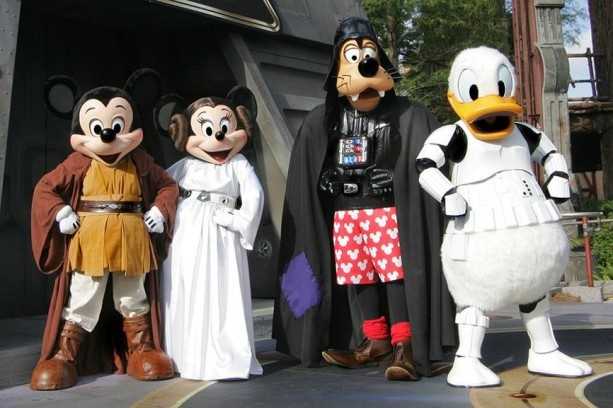
With a multi-billion dollar franchise now in their hands, the film folks at Disney had an enormous task at hand – they had to make Star Wars relevant again. Much like the daunting task behind the conceptualization and production of the Avengers films, Disney execs needed to carefully wrangle a behemoth to pump out the ticket sales this puppy was capable of spitting out.
But this wasn’t a franchise with characters new to the silver screen like Cap and Iron Man. This was Star Wars. Even if you haven’t seen the movies, you know who Luke Skywalker and Darth Vader are, and when something’s as precious to worldwide pop culture as Star Wars, the stakes are impossibly higher.
Without George Lucas’ involvement, the risk was real.
So Disney did what any smart businesspeoples would do – they took a complicated/storied property and simplified it to three things: polish, digestibility and nostalgia.
(Read: Revisiting Star Wars | The Original Trilogy)
That’s branding 101. It’s the perfect means to reach every possible audience member for those sweet sweet ticket sales, and the box office numbers for TFA speak for themselves. But those three ingredients are cheap, and it rebuilt Star Wars upon a shaky foundation.
I don’t need to preach to you about what makes narratives worth experiencing, or why this was a crucial mistake for Disney. You have your own opinions, and that’s fine. But Star Wars is an established story, and you fell in love with it for a reason: good storytelling.
The Force Awakens was written as a franchise reintroduction first, and a narrative second. One of the screenwriters himself, Michael Arndt, hinted at this process at a post-screening Q&A for the movie. and when story is put second, you create a product bereft of depth. From an excerpt in Entertainment Weekly:
I had originally written R2 and C-3PO showing up together, and Larry very intelligently said, ‘You want to keep them separate from each other. And of course I’m like, ‘No, no, no, Larry. You don’t get it at all!’” Arndt joked, drawing laughs from the audience – as well as the screenwriter of The Empire Strikes Back and Return of the Jedi sitting beside him.
Then Arndt says he got it: R2-D2’s arrival had to be presented as a kind of delayed gratification, building up the audience’s expectation before the droid rolls out and starts beep-blooping.
The chief ingredients for good storytelling are well developed characters and a compelling plot – two things The Force Awakens lacks in part because of the prioritization of franchise moments over story moments like the one above.
To understand why the Star Wars stakes are so high with The Last Jedi, we must first admit what went wrong with The Force Awakens. The tragedy is that TFA starts off so, so good…
The Heroes
To begin, it has to be stated that Rey’s introduction is superb. Through only a few lines of dialogue, we learn so much about who she is and the kind of life she leads. Watching this lonely scrap-scavenger struggle to survive in the dunes of Jakku is genuinely awesome.

Act 1 turned out to be an embarrassment of riches, for the same can be said of Poe and Finn. A roguish space pilot on the search for Luke Skywalker and at the hands of a terrifying new enemy? Awesome. But a stormtrooper defecting once he sees the horrors of war and the dark side? SHUT UP AND TAKE MY MONEY FOR EVERY SUBSEQUENT SHOWING!!!
Sadly, this momentum isn’t maintained. Rey’s character arch simply becomes a child of destiny for the newly “awakened” force, and her way there is incredibly unearned. After her time on Jakku, she never struggles again throughout the film. She beats up bad guys, she wins the approval of Han Solo, she expertly flies the Falcon; she makes every proper hero turn and never has to change with an obstacle. Rey simply overcomes and moves forward. While this concept can be compelling in the right story, Rey never serves her role with more depth than only a veneer of the heroes journey. Even when Kylo takes her captive, it’s only so the audience can be shown her immediate mastery of the force over her adversary both mentally and physically. This is what begat the “Rey Is A Mary-Sue” controversy, and while that opinion was grossly simplistic for such a culturally significant character, you cannot deny the shallowness of Rey’s arch compared to Luke’s. She doesn’t earn her feats or struggle against overwhelming odds. She just wins.
That’s not good storytelling; that’s wish-fulfillment.
Poe and Finn don’t fare much better. What begins as a search for Skywalker and his subsequent captivity quickly devolves into Poe’s roll as (insert greatest pilot in the galaxy) with more plot armor than Jaime Lannister in a dragon fight.
Finn, the defector who had his sanitized stormtrooper perspective forever stained by the dying hand of his comrade, becomes… bumbling comic relief? Or is it an adapt survivalist? Wait… a soldier with a purpose now?

Maybe we’ll find out in The Last Jedi, because we never quite got there in The Force Awakens. Finn is all over the place, and right when he’s about to see his journey through in a moment of heroism vs the patricidical (not a word but should be) Kylo Ren, he’s… injured and out for the rest of the movie. Not killed fighting for what he believes in, not triumphant in his heroism, just… put on the bench until the sequel.
To paraphrase Han Solo, that’s not how, er, storytelling works.
And it doesn’t. This isn’t TV, it’s a movie, and every movie in a trilogy has to stand on its own. Rey’s unearned ability, Poe’s plot devices, and Finn’s obscurity all muddle their character development to the point of no return. Instead, they’re polished with good actors, great visuals and a wild cinematic ride.
But this is Star Wars.
And story is king, not splendor.
The Villains
The Joker. Hannibal Lecter. Hans Gruber. Darth Vader. The power of a compelling villain is well documented in cinema history, but all of them have one thing in common: all are clearly defined to challenge our hero.
Yet The Force Awakens has some of the most poorly defined villains since, well… to be fair, Count Dooku and the Separatists in Attack of the Clones.
Thus enters our Act dilemma once again. Act 1 introduces us to an impossibly cool and terrifying new villain. A Sith obsessed with Vader (hey, us too!) who uses his power to break minds and stop laser beams.
Whoa.
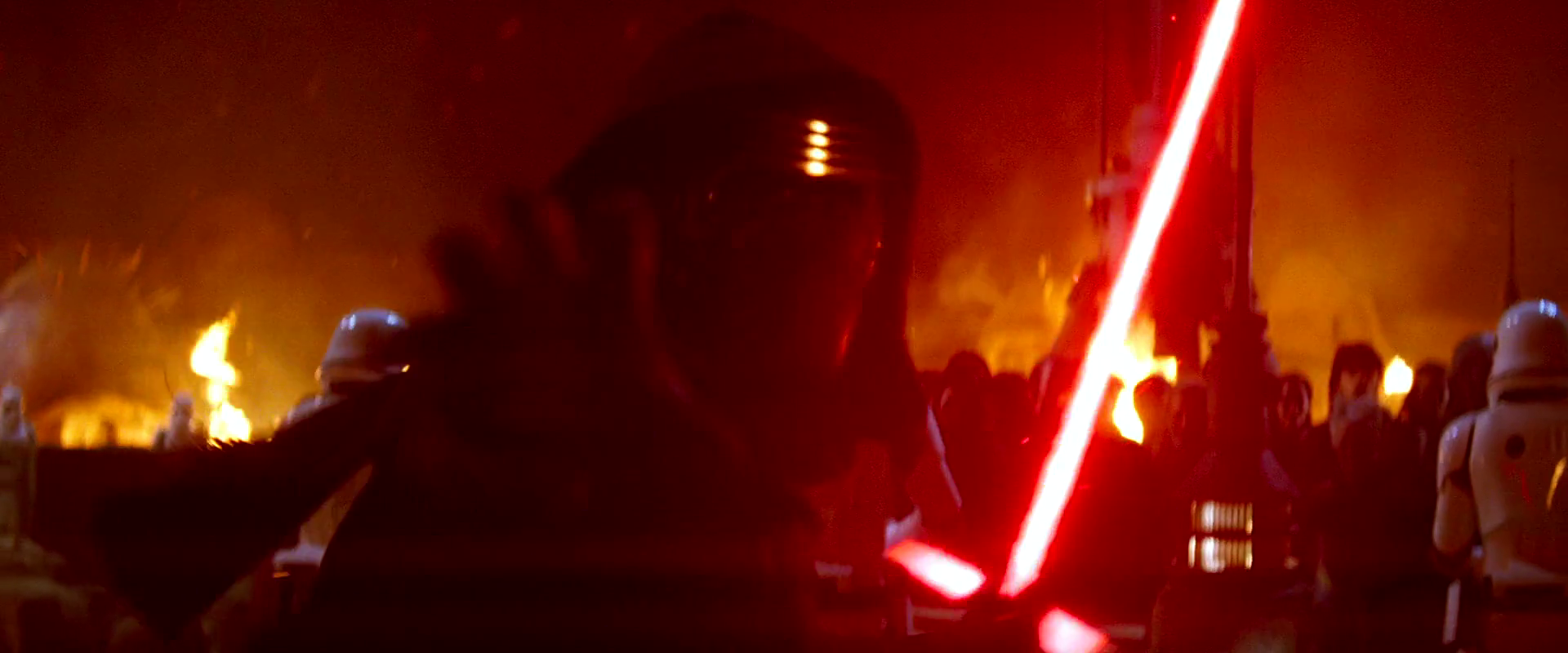
But just like our friendly neighborhood heroes, Kylo Ren transforms from daunting villain to angry sadboy by the time the credits roll. To be sure, his arch becomes more relatable and humanizing, but those aren’t the characteristics of a series villain.
They’re the plot seeds placed for an Episode IX redemption.
Unveiled. Uninspired. And unremarkable.
Our other villains, The First Order, should hope to compensate for Kylo’s failure as a compelling villain with their plot machinations, but we’re never given enough time with them to find out why we should fear their goals.

The First Order is an alt-right, fascistic military organization that succeeds in destroying the home worlds of The Galactic Republic presumably established after the events of Return of the Jedi. Legit scary.
But their context as villains is severely hampered by the severe lack of context we’re given for their actions. At the surface level, they’re a less popular Empire with yet another world-killing weapon. But while the Empire was an establish order holding an iron fist over the victims of the galaxy, we don’t see the horror The First Order would impose upon the galaxy should they succeed, save for some by-the-numbers rhetoric and dated fashion choices.
They simply aren’t contextualized as a real threat. Which leads us to…
The Plot
The Force Awakens plagiarizes A New Hope to a shameful degree. I know you already know this, but reacquaint yourself with just how egregious this is below. It’s scary.
This is a problem for two reasons.
One is because imitation isn’t just the most sincerest form of flattery, it’s the lack of originality in one of the most original series ever concieved (just ask a fan if Star Wars is science fiction, sit back, and watch the fireworks begin).
The second is because The Force Awakens tries to simultaneously introduce way too many new elements to the same formula.
We know what goes on with Han, what The Resistance is all about, and that the Force exists, but think of the HUGE plot questions caused by TFA.
What happened since Return of the Jedi? What is (was) the Republic? Why is Luke missing? Who is Snoke? How did The First Order come about if the Republic was in charge? Why did Han and Leia part ways? What happened with Kylo Ren and Luke? Who are the Knights of Ren? How did they create Starkiller base if they weren’t a powerhouse? Why did R2D2 just turn back on besides a screenwriter’s setup?!

I know some of these questions are meant to be kernels that lead us through the trilogy. I also know that Star Wars now relies upon a vast network of novels, comic books, video games, and TV shows to fill in missing bits of lore. But these questions are enormous to painting the world of The Force Awakens as real. When the context of a film is iffy, our acceptance of the stories within that world become less impactful and more surface level experiences.
George Lucas might not be the best director (see: Star Wars I-III), but he’s one of the most talented and imaginative visionaries in cinema history (see: the phenomenon that is Star Wars). Here, Disney tried to use Lucas’ formula without a clear vision.
The Future
What we got in The Force Awakens was an incredibly digestible, polished, and nostalgic Star Wars experienced. It hit the fan-service notes by delivering shallow characters and a retread plot with the fresh coat of a hit franchise.
The prequel trilogy was bad, but it was imaginative. Its problems stemmed not from a lack of originality but from unchecked decisions from a man who became accustomed to writing some truly atrocious dialogue. But that same story in the hands of the teams that made the OT so good, and you’d have something equally enthralling.
The Force Awakens isn’t a good story gone bad; it’s a bland story that is situated to redefine the legacy of Star Wars.
You don’t have to reintroduce a franchise or recycle thematic concepts if you have a good story first. Everything else, from snowy lightsaber fights to callbacks to our favorite characters, is gravy. Don’t get me wrong, it’s really delicious gravy when we’ve been starving for decades, but as the boys at South Park put so eloquently, it lacks sustenance.
https://www.youtube.com/watch?v=QM2zcv5AfaM
But there is a New Hope…
We’ve seen what Disney can do once they’ve established a franchise (Exhibit A: The Winter Soldier). They have a real opportunity now to deliver The Last Jedi as a definitive film in the Star Wars pantheon, but that’ll only be possible if they stray from the now established set by The Force Awakens.
Gerardo Valero at Rogerebert.com captured the current Star Wars problem expertly in one sentence:
The scenes where Rey and Kylo Ren do battle and the one where Han Solo meets his fate demonstrate that these new filmmakers do not grasp what their predecessors always did: it was always the character’s journeys by themselves that made the older movies enjoyable, including their falls and heartaches.
Valero is right, and he goes on to point out that there’s a reason The Empire Strikes Back is the best Star Wars film. It’s categorized as “bleak” by many, but Empire is special because it takes the well defined characters from IV and ups the ante in every way conceivable. It shows us that our heroes live in a world with stakes, with consequences, with vulnerable heroes, with powerful adversaries. That makes every swing of the lightsaber a hundred times more dramatic than anything even hinted at in The Force Awakens, but it is nonetheless the opportunity set before us with The Last Jedi.
They don’t have to change a thing, mind you. The Force Awakens was a fiscal and (initially) critical smash hit. All they have to do is stick to the formula, and they’ll reap the returns.
But this is Star Wars. And Star Wars deserves better than vanilla restructuring not in spite of its cultural relevance, but because of it.
Andrew Troller asked me, “What do you want from The Last Jedi that you didn’t get from The Force Awakens?”
- I want characters that have the depth and struggle to earn their moments.
- I want villains that are compelling and defined.
- I want a story that establishes itself with originality and stakes beyond audience expectation.
For better or worse, I want anything but facile, calculated mediocrity.
You know – I want it to be a Star Wars movie.


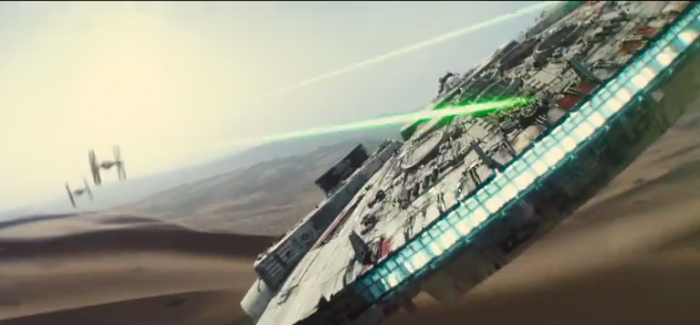

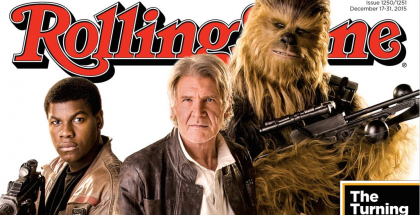
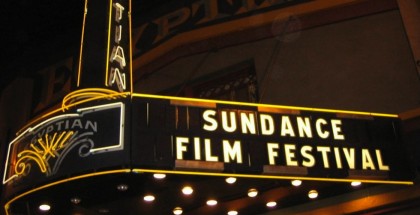
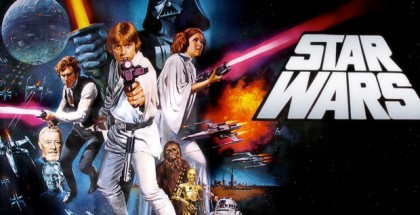
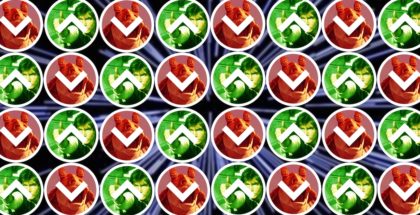
Submit a Comment